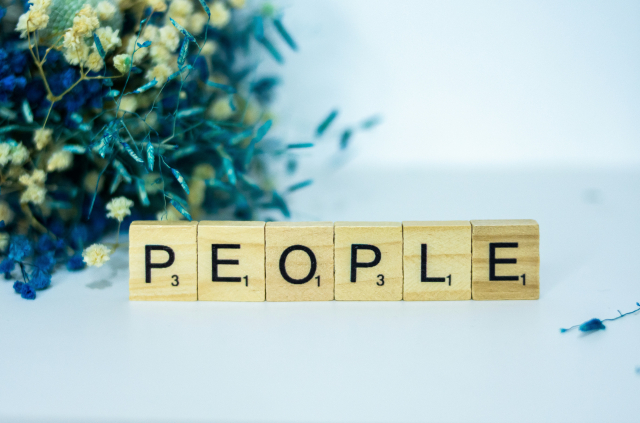From Burnout to Belonging: Humanizing the Diabetes Experience
The Side of Diabetes We Don’t Talk About Enough
When we think of diabetes management, we often think of tasks: Check. Count carbs. Correct. Dose insulin. (Log?) Repeat.
But behind those tasks lies something much heavier, which is the emotional labor of a chronic condition that never takes a day off. We all know the feeling.
Burnout, frustration, fear, exhaustion, invisibility, which are unsurprisingly just as much a part of the diabetes experience as insulin, pumps and glucose meters.
And yet, the emotional side remains one of the least addressed aspects of care. Minimal check ins and management, often unless you are strong enough to admit that you need support yourself.
We cannot build truly person-centered diabetes care without naming this truth: diabetes is not just managed. It’s carried.

What Diabetes Burnout Really Looks Like
Diabetes burnout isn’t laziness, noncompliance, or a lack of education. It is rather the natural human response to relentless pressure.
It can look like, for example, ignoring numbers because they feel too overwhelming, feeling judged by a device or a graph, resenting a body that seems unpredictable, dreading appointments instead of looking forward to support, or that dreaded feeling of feeling alone, even when surrounded by people who very well understand you and where you are.
Burnout is not a personal failing, it is a signal that you need better support.
Is “Belonging” The Antidote to Burnout?
If burnout thrives in isolation, then belonging thrives in connection. At least it should.
Belonging means to be listened to without judgment, to know that your experiences are valid, to feel safe to share the hard moments, to be seen as a partner, not someone to be managed, as well as to see your reality reflected in that of others.
This is where person-centered care becomes transformative. Because person-centered care doesn’t just treat the condition,
it truly supports the person carrying it.
What Does It Really Take to Humanize Diabetes Care?
Healthcare systems often focus on what’s quantifiable, numbers, results, something palpable to show how you are doing in your management. Yet, something as “fluffy” as emotional wellbeing is (also) central to outcomes, resilience, and long-term engagement.
To humanize care, we have to start asking about how people feel, not just how they dose, normalize discussions about diabetes distress and burnout, engage in training healthcare teams in empathy and trauma-informed communication, integrate mental health support as part of standard care, encourage shared decision-making, not “compliance”-based conversations, and, perhaps most importantly. make room for the person’s life context, values, and emotional needs!
This is not “soft care.” It is foundational care, which leads to better clinical, emotional, and quality-of-life outcomes.
Where VBHC Meets Human Experience
In Value-Based Health Care (VBHC), health is defined by outcomes that matter to patients. And what actually matters most often lies beyond clinical metrics.
This is why I’m so fascinated by VBHC tools, because PROMs and PREMs have the ability to capture elements like emotional wellbeing, confidence in self-management and self-care, social participation, trust in the care team, and if there is a sense of control for the person.
These are not secondary factors. They are the difference between surviving and living fully with diabetes.
Systems that honor these outcomes create healthcare environments where belonging becomes part of the treatment plan.
The Power of Diabetes Burnout
During a workshop a few years ago, I asked participants living with type 1 diabetes to describe the hardest part of their daily management.
Not one person mentioned A1c, insulin, time-in-range, or tech.
Instead, they mentioned things like:
“The pressure.”
“The guilt.”
“The loneliness.”
“The fear of getting it wrong.”
That day, something became very clear for me, which is that diabetes care must expand to include emotional infrastructure, or it will always fall short of outcomes that matter to people living with diabetes.
From Burnout to Belonging: A Vision for What’s Possible
Imagine a world where emotional support is routine, not reactive, where people feel safe sharing the messy middle, and healthcare teams value emotional data as much as clinical data. Additionally, care is measured not only in metrics, but in meaning, and belonging is built into the system, not left to chance?
This is the future of person-centered care. And it especially has to become the future of diabetes care. The best thing is that it’s within reach if we choose to prioritize humanity in healthcare.
Let’s Talk About It
What’s something you wish your diabetes care team understood about the emotional side of diabetes?
Or, if you’re a healthcare professional, what helps you create a space of belonging for your patients?
Share your thoughts below or connect with me on LinkedIn or Instagram (@hannadiabetesexpert).
Humanizing care starts with conversations like these. 💙










Leave a Reply
Want to join the discussion?Feel free to contribute!